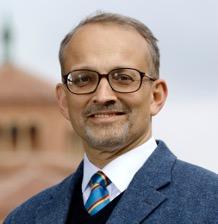Powering Inaccessible Circuits and Communicating with them through Coupled Inductors

Dr. Asad Abidi
Professor Electrical and Computer Engineering, UCLA, CA
Cerent Engineering Science Complex, Salazar Hall 2009A
4:00 PM
Abstract - The world today is full of unpowered electronic circuits that rely on contactless methods of receiving power and communicating with an external terminal. The most common example is “Tap cards” at points of sale, to pay fares on public transport, and so on. RF tags are increasingly entering warehouses, hospitals, and other inventory collections. Unlike optically scanned barcodes, electronic circuits today contain non-volatile memory and therefore information unique to each tag.
Most of these applications exploit weakly coupled coils to transmit power and data. How this works is not as obvious as it might seem.
I will show the circuit theoretic principles of these near-field links, and a rediscovery of Tesla’s oscillation transformer that leads to self-regulated power delivery through an inductive link that is, within limits, independent of coupling coefficient.
Speaker Bio - Asad Abidi received the BSc degree in Electrical Engineering from Imperial College, London in 1976, and the PhD from the University of California, Berkeley in 1982. He worked at Bell Laboratories, Murray Hill until 1985, and then joined the faculty of the University of California, Los Angeles where he is Distinguished Chancellor’s Professor of Electrical Engineering. With his students he has developed many of the radio circuits and architectures that enable today’s mobile devices.
Among other awards, Professor Abidi has received the 2008 IEEE Donald O. Pederson Award in Solid-State Circuits and the 2012 Best Paper Award from the IEEE Journal of Solid-State Circuits. The University of California, Berkeley’s Department of EECS recognized him as a Distinguished Alumnus in 2015. He was elected Fellow of IEEE in 1996, Member of the US National Academy of Engineering, and Fellow of TWAS, the world academy of sciences.

